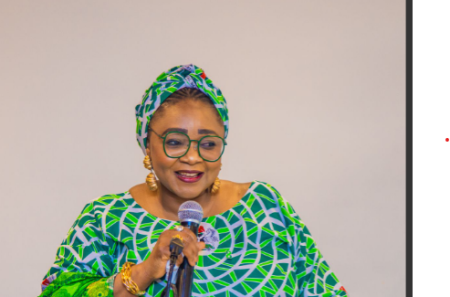Paragraph 1: Kuti’s Ascent and Omotayo’s Decline in the ITTF Rankings
Matthew Kuti has solidified his position as a rising star in Nigerian table tennis, ascending to the rank of the country’s second-highest-ranked male player in the latest International Table Tennis Federation (ITTF) World Rankings. This achievement comes after a stellar performance at the 2025 West Africa Regional Championships held in Lagos, where he secured the title and garnered 75 valuable ranking points. His overall point accumulation was further bolstered by his participation in the ITTF World Championships Finals in Doha and the WTT Contender Lagos, adding 10 and 4 points respectively, bringing his total to 89 and propelling him six places up the global rankings to 194th. In contrast, Olajide Omotayo, the 2019 African Games champion, experienced a significant setback, dropping 37 places to 198th globally. His struggles in Lagos impacted his ranking, leaving him with 78 points and precariously close to falling out of the world’s top 200. This shift in rankings underscores the dynamic and competitive nature of professional table tennis, where performance fluctuations can significantly impact a player’s standing.
Paragraph 2: Aruna Reclaims Continental Supremacy
Quadri Aruna has reasserted his dominance as Africa’s top-ranked table tennis player, reclaiming the coveted position after a period of inactivity. Despite not competing since the United States Smash in July, Aruna ascended three places to 21st in the global rankings, boasting 1,185 points. This resurgence can be attributed to the ITTF’s rolling 12-month ranking system, which gradually phases out older points for players. Consequently, Aruna benefited from the removal of older points from his rivals, allowing him to regain his continental leadership. This highlights the importance of consistent performance over time in the ITTF ranking system, as older results gradually lose their weight. Omar Assar of Egypt, who briefly held the top African spot, has now fallen behind Aruna in the global standings, further solidifying Aruna’s renewed dominance on the continent.
Paragraph 3: Abdulfatai and Mati: Nigerian Players on the Cusp of the Top 200
Just outside the world’s top 200, two Nigerian players, Abdulbasit Abdulfatai and Taiwo Mati, are making their mark on the international table tennis scene. Abdulfatai, ranked 205th, saw a two-place improvement in his ranking, fueled by a strong showing in Lagos. His runner-up finish at the West Africa Regional Championships contributed significantly to his 74 ranking points, with 55 points coming from the regional championships and an additional 19 from the WTT Contender event. Mati, at 213th, maintains his position as one of Nigeria’s most active international competitors. He accumulated 35 points with a Round of 16 finish at the WTT Contender Lagos, the joint-highest achievement by an African player at the event, and further bolstered his points tally with 25 points from his semi-final run at the West Africa Regional Championships.
Paragraph 4: Mati’s Global Journey and Adegoke’s Steady Climb
Taiwo Mati’s commitment to international competition is evident in his accumulation of ranking points from tournaments across the globe. His global points total reflects his participation in events in Cagliari (3 points), Muscat, Tunis, and Skopje (2 points each), showcasing his dedication to competing on a diverse range of stages. This consistent engagement in international tournaments has allowed him to maintain a steady presence in the world rankings. Meanwhile, Muizz Adegoke also experienced a positive trajectory, climbing two places to 232nd in the world rankings with a total of 59 points. This upward movement reflects his consistent performance and contributions to the Nigerian table tennis scene.
Paragraph 5: Nigerian Women in the ITTF Rankings
Fatimo Bello continues to lead the charge for Nigerian women in the ITTF rankings, although she experienced a drop of 17 places to 134th globally. Her semi-final appearance at the 2025 ITTF African Cup in Tunis remains a significant contributor to her overall ranking points, accounting for 175 of her 189 points. Additional points were earned through her performances in Lagos and Doha. Ajoke Ojomu demonstrated strong progress, climbing five places to 153rd in the world rankings with a total of 120 points. Her victory at the West Africa Regional Championships significantly boosted her ranking, adding 75 points, while performances at the WTT Contender Lagos and the World Championships in Doha contributed 35 and 10 points respectively. Completing Nigeria’s top three female players is Aminat Fashola, ranked 174th with 94 points.
Paragraph 6: The Significance of the ITTF World Ranking System
The ITTF World Ranking system serves as a critical benchmark for evaluating the performance and progress of table tennis players worldwide. These rankings play a pivotal role in determining tournament seedings, influencing Olympic qualification pathways, and providing an objective measure of a player’s standing within the global table tennis landscape. The system’s rolling 12-month format ensures that rankings reflect current form and performance, while also acknowledging past achievements. The rankings are constantly evolving based on tournament results, creating a dynamic and competitive environment where players strive to improve their standing and solidify their positions among the world’s elite. The rankings also serve as a valuable tool for fans and analysts to track the progress of players and identify emerging talents within the sport.














